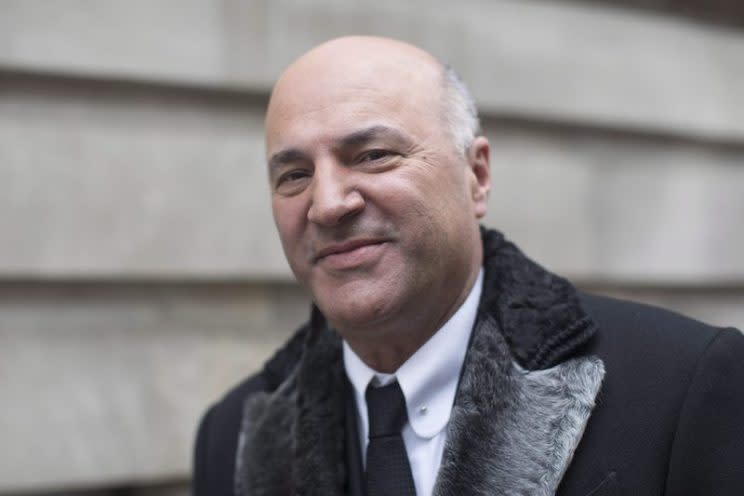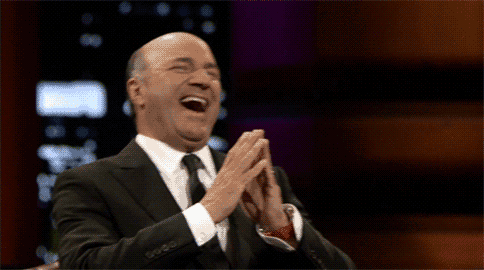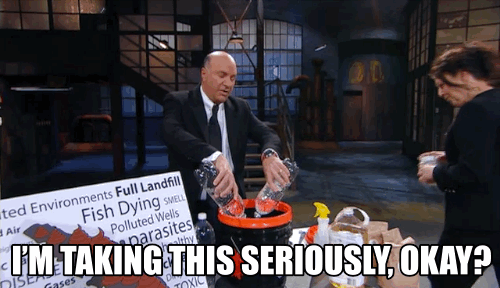Kevin O'Leary's TV work isn't illegal, but it could prove problematic

When actor Arnold Schwarzenegger ran for governor of California in 2003, Californians didn’t see any of his films on television during the election campaign. It was the same for actors Gary Coleman and Don Novello, who also ran in the that race.
That’s because of a statute in the U.S. Federal Communications Act that mandates Federal Communications Commission licensees to give legally-qualified candidates equal airtime during an election. According to some, airing the movie Kindergarten Cop on TV could’ve given Schwarzenegger an unfair advantage during the race he eventually won.
But TV personality Kevin O’Leary shouldn’t come up against any similar restrictions in Canada now that he has officially entered the race for leadership of the Conservative Party of Canada, according to Philip Savage, a communications professor at McMaster University in Hamilton, Ont.

In Canada, O’Leary had lengthy roles with CBC TV, appearing on Dragon’s Den and the Lang and O’Leary Exchange, before leaving for Bell Media in 2014. Though CBC does sometimes show Dragon’s Den reruns featuring the businessman, that wouldn’t necessarily be an issue for O’Leary under the network’s own guidelines, Savage told Yahoo Canada News.
The public broadcaster could perhaps find itself scrutinized by the CBC ombudsman if O’Leary were suddenly given a platform on the outlet, Savage said. “But it would be very difficult to make a case on his just appearing on a particular program and making references to things about his own political plans or ambitions,” he explained. “I don’t think that there would be any reason, based on my understanding of recent precedents, for a complaint to have much legitimacy.”
“There are laws and then there are norms,” said David Moscrop, a PhD candidate in political science at the University of British Columbia. “It doesn’t appear to me that he’s violating any laws, but he does appear to be violating norms.”
O’Leary was dropped as a commentator for CTV News and BNN last December after launching his campaign exploratory committee.

“There was criticism that he was having it both ways,” Moscrop said of O’Leary continuing his TV appearances while openly contemplating whether to throw his hat into the political race. “It really sort of rested on (Bell Media) doing the right thing,” he said.
There is one thing about O’Leary’s pre-politics career that is outside the control of Canada but could still play into the leadership race: his roles on U.S. television. O’Leary currently appears on ABC’s Shark Tank and is a weekly commentator on CNBC, and he’s indicated that he will continue this work while campaigning. The CRTC has no jurisdiction over either of those roles, Savage said.
But seeing potentially the highest-profile Conservative leadership candidate commenting on the small screen south of the border may not sit well with Canadians — or the Conservatives —now that O’Leary has entered Canadian politics, Moscrop noted.
“I suspect he might want to start walking that back at some point because I don’t think Canadians are going to appreciate that,” he said. “I think Canadians will forgive him a lot when it comes to Shark Tank, but I don’t think they’ll love that he’s double dipping if he continues forward.
“People want to know that you’re committed to the country.”
O’Leary is not the first person with an existing public profile to enter politics, Savage said. Mike Duffy and Pamela Wallin had careers as journalists before they joined the Senate, he noted, and René Lévesque was well known in Quebec as a TV news host before he became the province’s premier.
But while O’Leary’s TV work may prove to be fodder for his Conservative competitors and could influence how Canadian voters ultimately feel about him, they don’t preclude him from entering politics now, according to Savage.
“It’s really in the court of public opinion,” Savage said.

Polling done last December by Abacus Data found that while O’Leary had the highest positive rating of the potential Conservative leadership candidates at 18 per cent, he also had a lower negative rating than all five of the top Tory candidates with 22 per cent.
O’Leary may find that his high name recognition could be a double-edged sword, Moscrop said. Michael Ignatieff was known as an intellectual and author before he entered politics, and he received a lot of criticism for returning to Canada to run for office.
Of all the days to not update the Linkedin profile. pic.twitter.com/CewDgyGzyF
— Sean Craig (@sdbcraig) January 18, 2017
On Wednesday, O’Leary still had his city of residence listed as Boston, Mass., on his LinkedIn profile, which highlights just one way his continuing ties to the U.S. could prove to be an issue.
“When you do things in Canadian politics, you do it with your whole ass, not half of it,” Moscrop said. “We don’t like to be condescended to, nobody does, and it really does smack of a little bit of condescension.”
Editor’s note: This post originally misstated UBC political science PhD student David Moscrop’s first name. We regret the error.



